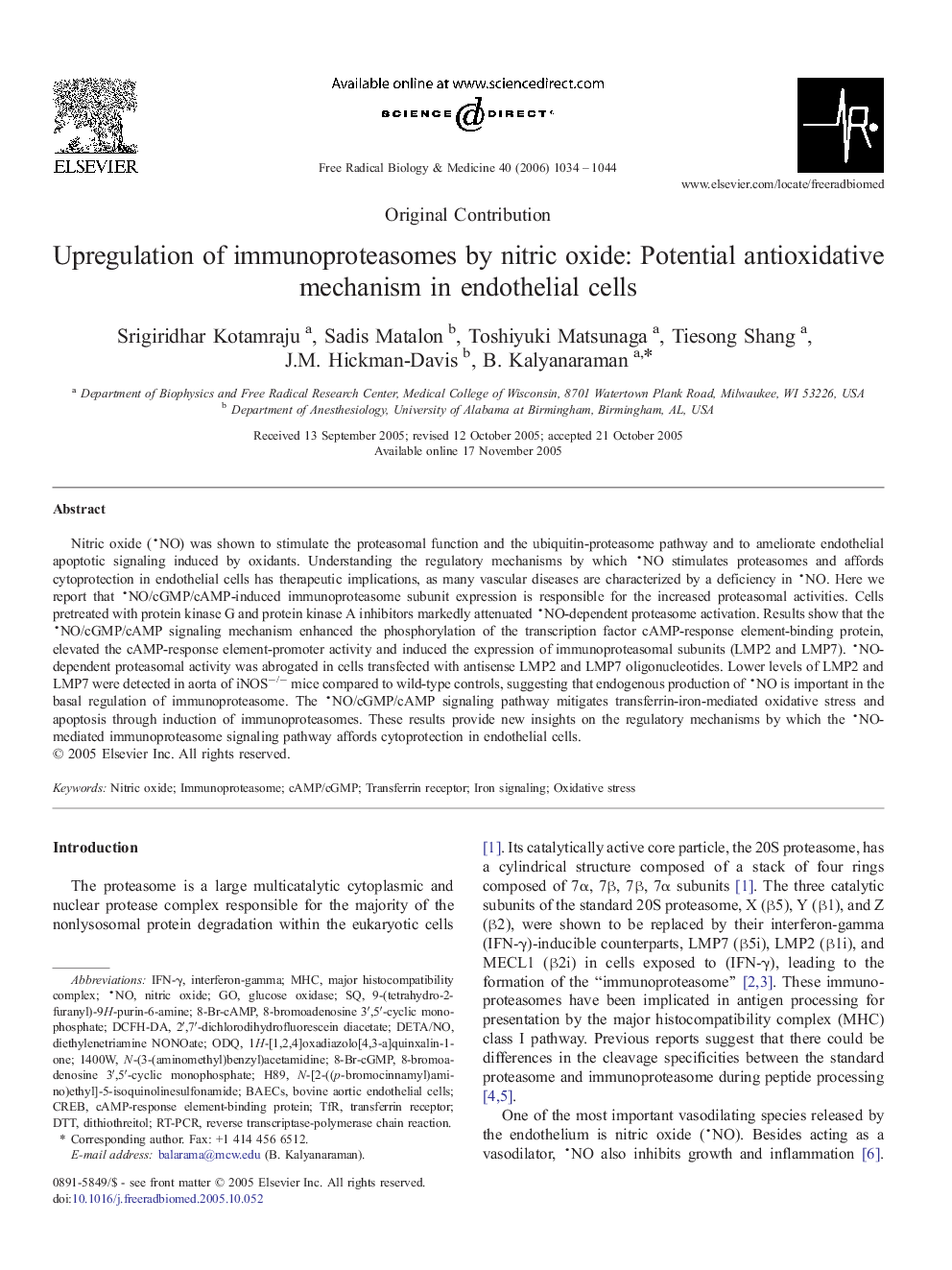| Article ID | Journal | Published Year | Pages | File Type |
|---|---|---|---|---|
| 1911683 | Free Radical Biology and Medicine | 2006 | 11 Pages |
Nitric oxide (NO) was shown to stimulate the proteasomal function and the ubiquitin-proteasome pathway and to ameliorate endothelial apoptotic signaling induced by oxidants. Understanding the regulatory mechanisms by which NO stimulates proteasomes and affords cytoprotection in endothelial cells has therapeutic implications, as many vascular diseases are characterized by a deficiency in NO. Here we report that NO/cGMP/cAMP-induced immunoproteasome subunit expression is responsible for the increased proteasomal activities. Cells pretreated with protein kinase G and protein kinase A inhibitors markedly attenuated NO-dependent proteasome activation. Results show that the NO/cGMP/cAMP signaling mechanism enhanced the phosphorylation of the transcription factor cAMP-response element-binding protein, elevated the cAMP-response element-promoter activity and induced the expression of immunoproteasomal subunits (LMP2 and LMP7). NO-dependent proteasomal activity was abrogated in cells transfected with antisense LMP2 and LMP7 oligonucleotides. Lower levels of LMP2 and LMP7 were detected in aorta of iNOS−/− mice compared to wild-type controls, suggesting that endogenous production of NO is important in the basal regulation of immunoproteasome. The NO/cGMP/cAMP signaling pathway mitigates transferrin-iron-mediated oxidative stress and apoptosis through induction of immunoproteasomes. These results provide new insights on the regulatory mechanisms by which the NO-mediated immunoproteasome signaling pathway affords cytoprotection in endothelial cells.
